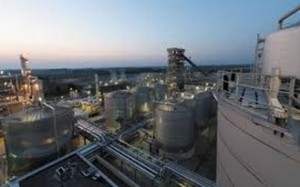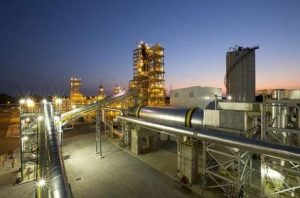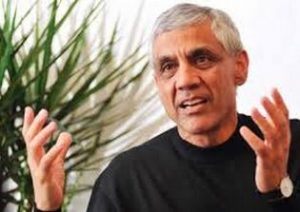 The battle over the amount of ethanol that the US Environmental Protection Agency (EPA) is targeting for production this year and next is still being fought out in Washington; then there’s always the question of whether advanced biofuels have any shot at being produced at scale and selling enough volume to make the investments profitable. Initially, the Renewable Fuel Standard had ambitious goals for next-generation biofuels made from corn stalks, switch grass, wood chips, municipal waste, and other biomass to produce cellulosic, algae, and other advanced biofuels. The EPA has cut down the production volume numbers for advanced biofuels including cellulosic.
The battle over the amount of ethanol that the US Environmental Protection Agency (EPA) is targeting for production this year and next is still being fought out in Washington; then there’s always the question of whether advanced biofuels have any shot at being produced at scale and selling enough volume to make the investments profitable. Initially, the Renewable Fuel Standard had ambitious goals for next-generation biofuels made from corn stalks, switch grass, wood chips, municipal waste, and other biomass to produce cellulosic, algae, and other advanced biofuels. The EPA has cut down the production volume numbers for advanced biofuels including cellulosic.
For now, the US is focused on corn ethanol and biodiesel, and Brazil on sugarcane ethanol. Biofuels have a much broader future than ethanol, according to Thomas Foust, director of biofuels development at the National Bioenergy Center, which is part of the National Renewable Energy Laboratory. He thinks that new methods of making fuels directly from biomass “look promising from an economic perspective.”
The appeal of advanced biofuels has been very strong to many people – it’s considered greener and more efficient than ethanol. It’s much cleaner and more domestic than gasoline and diesel, and could play a sizable role in reducing transportation’s carbon footprint. There are lots of companies out there gaining investors and building facilities in the US, Europe, and Brazil, with the benefits of job creation and producing fascinating, advanced, clean fuels. Still, the challenges are great with many of these companies failing financially, and others taking a long time to build commercial production plants and find the right client base to purchase the fuel.
Advanced biofuel companies have ramped up production to the development stage and have had large financial backers from brand-name equity partners; some have gone public in the past three years. They’re being taken a lot more seriously now for transportation, including jet fuel. The advanced fuels do have their share of skeptics and critics who have watched several companies fail financially in recent years. Biofuel advocates have their own skepticism and arguments over what methods make the most sense; for example, cellulosic ethanol is thought by some analysts to be far too expensive, but other cellulosic fuels make a lot more sense.
Here’s the latest on companies worth following and on a trade association that you should know about……
KiOR: As mentioned recently, this company that produces and sells cellulosic gasoline and diesel from non-food biomass has been getting financial backing from one of the leading venture capitalists out there, Vinod Khosla. The company is doing much better now facing challenges including a class-action lawsuit by investors unhappy with the company. The company operators one of the nation’s first cellulosic facilities in Mississippi, and just had its best production quarter ever – 324,000 gallons of fuel from woody biomass that’s identical to gasoline and diesel and is called drop-in fuel. KiOR shipped 245,000 gallons to customers in the oil industry during that quarter. The company just received $100 million in committed equity commitment for its Columbus, Miss., production plant. About $85 million of it came from Khosla Ventures and other Khosla entities.
Novozymes: is in partnership with Italian biofuels company Beta Renewables and will be opening in northern Italy what could be the world’s largest biofuels facility. Made from agricultural residues and energy crops at a commercial scale, the facility is expected to product over 20 million gallons of cellulosic ethanol a year. Novozymes’ role is providing the industrial enzymes needed to break down materials that the Italian plant will be using.
Solazyme: The company’s proprietary technology produces renewable oil and bioproducts from a range of plant-based sugars. The company has provided algae diesel with Propel Fuels, other ground transportation clients, and for air travel. The company is set to reach commercial-scale production in the US and Brazil in the first quarter of 2014. California-based Solazyme has custom-made algae tanks to develop better biofuels, and it has sold thousands of gallons to the Navy for use in its ships. Solazyme has also branched into making oils for higher profit products like cosmetics, food, and petrochemicals. The company will provide about three million gallons of algal oil for Unilever’s consumer products.
Gevo: A lot of the company’s business comes from providing isobutanol for the specialty chemicals market and converting it into bio-based jet fuel for the US military including the US Air Force and US Army. In September, Gevo signed an agreement with the US Navy to supply them with 20,000 gallons of Gevo’s alcohol-to-jet-5 fuel. The company previously supplied AT J-8 jet fuel – 56,000 gallons to the US Air Force and 16,150 gallons to the US Army. Gevo will supply the US Coast Guard with up to 18,600 gallons of finished 16% renewable isobutanol-blended gasoline. Gevo has also signed a contract to supply fuel to The Coca-Cola Co.
Amyris: has produced products such as squalene for the cosmetic industry and renewable diesel for Brazilian transportation authorities. Brazilian airline GOL will be using Amyris’ renewable jet fuel in 2014. GOL and Amyris will work together to establish a framework for bringing Amyris renewable jet fuel produced from Brazilian sugarcane to GOL’s flights following regulatory approvals by standard-setting bodies.
Advanced Biofuels Association (ABFA): Nearly every one of these companies listed above are members of ABFA. The organization helps members meet the Renewable Fuel Standard (RFS) for advanced biofuel consumption in the US. Members have built or purchased commercial-scale plants as advanced and/or cellulosic under the RFS; many of the members will be bringing commercial plants in operation by 2015. It’s membership is impressive; along with leading companies listed above, the list includes Intertek, which provides testing, inspection, and certification for advanced biofuels – and also plays a leading role in testing electric vehicles and charging stations; Oberon Fuels, which has the big dimethyl ether (DME) contract with Volvo and Mack trucks; Sapphire Energy and its algae and replacement transportation fuels; and Cool Planet, which converts non-food biomass into gasoline.
 KiOR Inc., which operates a commercial-scale cellulosic biofuel plant, may be closing its shutters very soon. Backed by venture capitalist Vinod Khosla, there’s been a lot of hope in KiOR as a symbol for possibility in advanced biofuels as a clean transportation fuel. Its catalytic process converts woody biomass and non-food crops into gasoline and diesel and can be fueled through the existing US infrastructure. Khosla just made a commitment for near-term financing, but the company needs more additional capital by April 1 to stay in operation. The company needs to meet certain milestones to bring in at least $25 million by the end of this month; part of that milestone performance is bringing its Columbus, Miss., biofuel plant through an upgrade. If additional funding doesn’t come through, it’s likely to default on its debts and may file for bankruptcy. All of this was announced not long after the company reported a $347 million loss for 2013.
KiOR Inc., which operates a commercial-scale cellulosic biofuel plant, may be closing its shutters very soon. Backed by venture capitalist Vinod Khosla, there’s been a lot of hope in KiOR as a symbol for possibility in advanced biofuels as a clean transportation fuel. Its catalytic process converts woody biomass and non-food crops into gasoline and diesel and can be fueled through the existing US infrastructure. Khosla just made a commitment for near-term financing, but the company needs more additional capital by April 1 to stay in operation. The company needs to meet certain milestones to bring in at least $25 million by the end of this month; part of that milestone performance is bringing its Columbus, Miss., biofuel plant through an upgrade. If additional funding doesn’t come through, it’s likely to default on its debts and may file for bankruptcy. All of this was announced not long after the company reported a $347 million loss for 2013.

